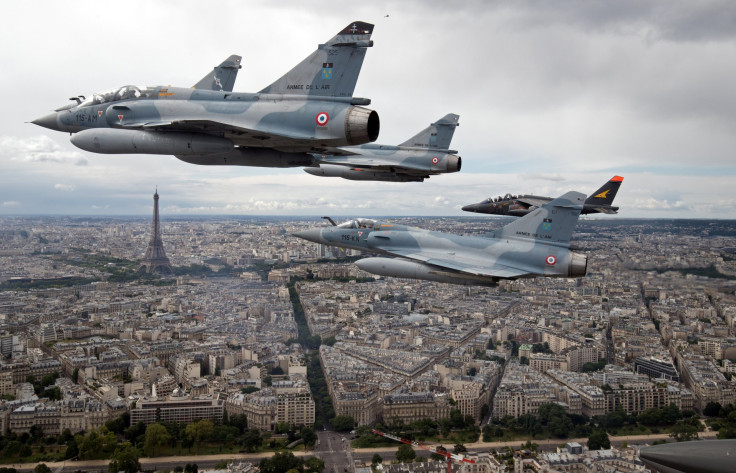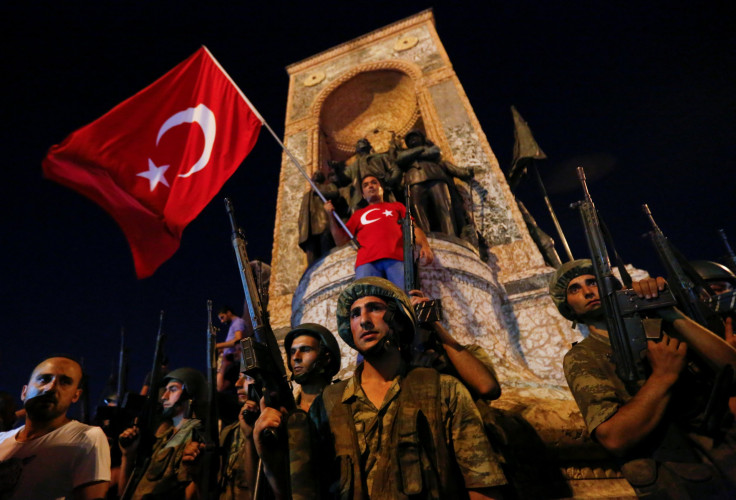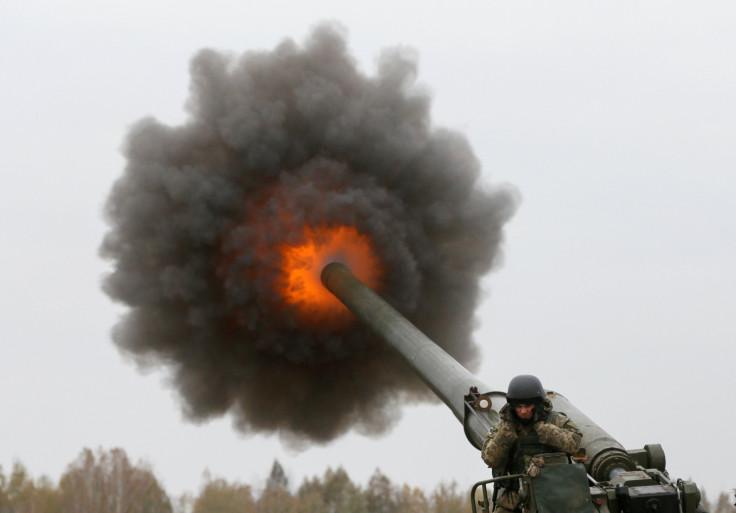Will World War 3 Start In 2017? Predictions For Trump, Russia, Middle Eastern Peace, US-Israeli Relations

2016 was a year of great uncertainty, to say the least: the Syrian conflict saw the historic city of Aleppo slip further into peril, the Brexit vote initiated the United Kingdom’s departure from the European Union and Donald Trump was elected the next president of the United States, leading many to wonder what comes next for international alliances, diplomacy and peace.
To say the world’s leading forces are closer to war than ever in the past decade wouldn’t be a far reach, according to a recent report published by the Council on Foreign Relations. In its ninth annual "Preventive Priorities Survey," the nonpartisan organization ranked a potential confrontation between the Russian Kremlin and the North Atlantic Treaty Organization (NATO), as well as the ongoing crisis and unpredictability in North Korea, as two of the top potential conflicts to arise in 2017. A military confrontation between Russia and the international peace-keeping body could possibly throw the entire world into a state of war, triggering World War III as Russian and U.S. allies across the globe are forced to take sides and provide resources.

Whether world leaders will band together to prevent ongoing crises from reaching war-threatening levels remains to be seen, however. On Thursday, Russian President Vladimir Putin announced a ceasefire deal had been reached in Syria among President Bashar Assad’s regime and opposing forces on the ground, which forms the Free Syrian Army. Putin also revealed peace talks would begin imminently between the battling groups, though both agreements were "fragile" and relied heavily on forces on the ground adhering to the latest call for an end to the violence.
The United States was not involved in the ceasefire negotiations. Trump received a congratulatory call from Putin upon his surprise victory in the 2016 presidential election, however, reportedly discussing both leaders’ wishes to work together in eliminating the Islamic State and resolving the five-year-long Syrian conflict.
The Council on Foreign Relations' report also indicates a mass casualty terrorist attack on U.S. soil, as well as the intensifying violence between Turkey and Kurdish forces as other potential major conflicts that could cause lasting impacts throughout next year.
That isn’t to say such confrontations aren’t preventable, however. "With a new presidential administration assuming office, it is important to help policymakers anticipate and avert potential crises that could arise and threaten U.S. interests," Paul B. Stares, the Council’s Center for Preventive Action director, said in a statement. "Our annual survey aims to highlight the most likely sources of instability and conflict around the world so that the government can prioritize its efforts appropriately."

Meanwhile, U.S.-Israeli relations continue to dissolve after Washington failed to use its veto power on a United Nations resolution condemning Israel for establishing settlements in Palestinian territory and potentially hindering a two-state solution to maintain peace in the Middle Eastern region. Secretary of State John Kerry candidly spoke to the fate of peace in the Middle East in the years to come, describing the two-state solution as now being "in serious jeopardy."
"The truth is that trends on the ground – violence, terrorism, incitement, settlement expansion and the seemingly endless occupation – they are combining to destroy hopes for peace on both sides and increasingly cementing an irreversible one-state reality that most people do not actually want," Kerry said Wednesday. "This vote – I can’t emphasize enough – is not about the possibility of arriving at an agreement that’s going to resolve that overnight or in one year or two years. This is about a longer process. This is about how we make peace with the Palestinians in the future but preserve the capacity to do so."
לא יכולתי לנסח את זה טוב יותר
— Benjamin Netanyahu (@netanyahu) December 29, 2016
I could not have said it better myself@realDonaldTrump pic.twitter.com/5HOMWQl3MN
Israeli Prime Minister Benjamin Netanyahu described Kerry’s speech as "deeply disappointing" Thursday, writing in a statement: "In a speech ostensibly about peace between Israelis and Palestinians, Secretary Kerry paid lip service to the unremitting campaign of terrorism that has been waged by the Palestinians against the Jewish state for nearly a century."
It’s unclear whether relations between the U.S. and Israel, which seemed to hit a new low this week, will continue to plummet in 2017 or greatly improve under the Trump administration. The president-elect slammed Kerry’s speech and vowed to strengthen ties with Israel, which Netanyahu supported on Twitter Thursday afternoon.
As the world watches international conflicts continue to unfold and transitions in governmental power underway throughout Europe and the U.S., only one thing is sure: next year is certainly gearing up to be just as unprecedented as 2016.
© Copyright IBTimes 2024. All rights reserved.





















